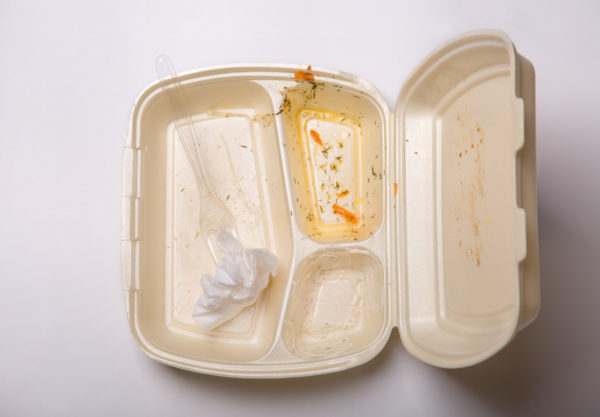New York Governor Andrew M. Cuomo today proposed a new law the prohibiting distribution and use of expanded polystyrene, commonly known as Styrofoam, single-use food containers. The proposal also bans the sale of expanded polystyrene packaging materials known as packing peanuts. Additionally, the bill would authorize the State Department of Environmental Conservation to review and take action to limit or ban other packaging material upon a finding of environmental impact. This would be the strongest statewide Styrofoam ban in the United States and would go into effect by January 1, 2022.
"Styrofoam is one of the most common pollutants and a public health hazard that impacts humans and the environment alike," Governor Cuomo said. "From take-out containers to packing peanuts, this material is everywhere and it will continue to pollute our waters and harm our wildlife for generations to come if we do not act. With this proposal, we can build on our nation-leading initiatives to protect the environment and move New York another step closer to a greener, more sustainable future."
The new legislation will:
- Ban the distribution and use of expanded polystyrene foam containers used for prepared foods or beverages served by food service establishments, including restaurants, caterers, food trucks, retail food stores, delis and grocery stores.
- Ban the sale of polystyrene loose fill packaging, commonly known as packing peanuts.
- Authorize the State Department of Environmental Conservation to take additional action to limit or ban other packaging material upon a finding of environmental impact.
The ban exempts prepackaged food sealed prior to receipt at a restaurant or food service establishment, as well as packaging for uncooked or raw meat, fish or eggs.
The proposal specifies that the new law will take effect no later than Jan. 1, 2022. Mainstream Green urges everyone to not wait until a law passes to stop accepting Take out food, or restaurant service presented in Styrofoam. Bring your own containers and ask the establishment to put your food directly in it.
 Expanded polystyrene foam is one of the top ten contributors to environmental litter. The EPA estimates that the U.S. produces more than 3 million tons of polystyrene, which are non-biodegradable. These containers often break down overtime and enter waterways and wildlife areas as microplastics, where they pollute water sources and harm wildlife that ingest them. Human exposure to styrene, the primary chemical in polystyrene foam, is primarily through inhalation in the manufacturing sector. The National Toxicology Program has determined styrene is "reasonably anticipated to be a human carcinogen." Small amounts of styrene can also be transferred to food from styrene-based packaging materials.
Expanded polystyrene foam is one of the top ten contributors to environmental litter. The EPA estimates that the U.S. produces more than 3 million tons of polystyrene, which are non-biodegradable. These containers often break down overtime and enter waterways and wildlife areas as microplastics, where they pollute water sources and harm wildlife that ingest them. Human exposure to styrene, the primary chemical in polystyrene foam, is primarily through inhalation in the manufacturing sector. The National Toxicology Program has determined styrene is "reasonably anticipated to be a human carcinogen." Small amounts of styrene can also be transferred to food from styrene-based packaging materials.




